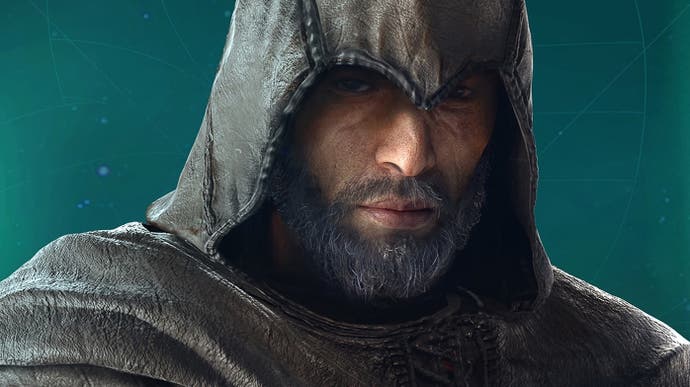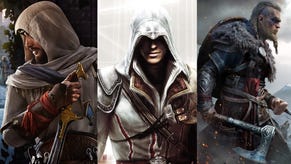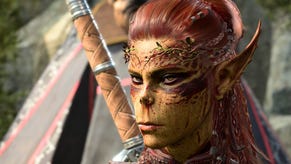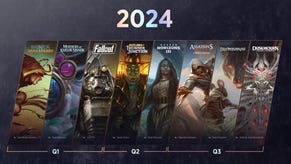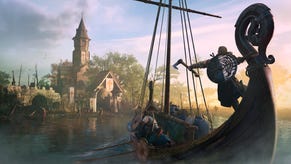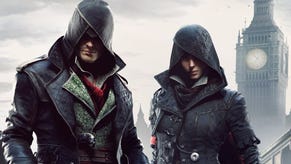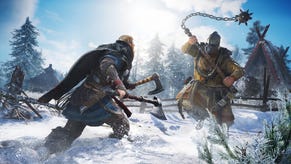Assassin's Creed Valhalla's many endings explained
Spoilers.
By now, you have hopefully reached at least one of Assassin's Creed Valhalla's many endings, depending how far and wide you have ventured through the game's various intricately-woven narrative threads.
As with Odyssey, you'll see different endings at different points as you polish off Valhalla's main Viking campaign, delve into its dreamlike mythical worlds of Asgard and Jotunheim, and hunt down every Order of Ancient target to unlock the game's final epilogue.
Valhalla arguably does a better job than Odyssey of tying all these various strands together, but there's still much to discuss, and further secrets to be found by hunting down collectibles such as the video pieces gleaned from the game's Animus glitch puzzles. So, here, we'll try and tie everything together. There's a lot going on.
MAJOR SPOILERS FOLLOW. THIS IS YOUR LAST WARNING. NO COMPLAINTS.
Gone a-Viking
Let's start with Valhalla's main campaign: Eivor's quest to conquer or quell the whole of England for the Vikings. As history tells us (spoilers for your school textbooks, kids), the Vikings got pretty darn close to ridding England of King Aelfred - and its here Valhalla's story somewhat triumphantly ends - even if this kind-of victory was short lived.
With every territory on the map under Eivor's control, you'll first venture to Norway to wrap up some mystical stuff with your brother Sigurd (more on that later), then return back to England for a big final battle. It's billed as your last push against Aelfred, and though you win the fight it comes at the great price. Many of your key allies are killed, while Aelfred gets away. Huh.
Without turning too much into a history lesson, there are certainly hints here as to what comes next - characters suggesting they don't know how long this victory will hold, even suggesting they will convert to Christianity to continue to survive in England longterm. For Eivor, though, you're left with a feeling the costs of continuing this fight have personally become too high - especially when her real victory, of finding a new place to call home and a new clan to live alongside - was assured long ago.
It's a somewhat downbeat ending, though one which feels similar in tone to the ending of Black Flag, where the cost of pirating was also underlined by the loss of many former friends and allies. There, Edward Kenway hangs up his pirate hat and sails home to his family. Here, many centuries earlier, Eivor heads back to her Ravensthorpe to do much the same.
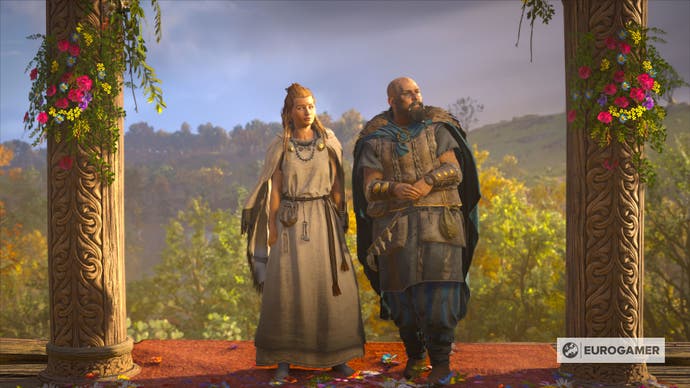
Templar tantrums
A further epilogue scene wrapping up Aelfred's role is available if you clear every target from your Order of the Ancients menu (yes, including those pesky Zealots). By now, you should have a pretty good idea who the Grand Maegester is at the very top of the organisation - likely thanks to Ubisoft not hiding his identity very well on the Order screen.
Begin the epilogue and the Maegester will soon be revealed as Aelfred himself, now living a peaceful peasant's life in a swamp and burning cakes, as legend suggests. In a twist, it is revealed the pious Aelfred inherited his Order of Ancients position from a brother, and kept it only to help tear down the group from the inside. He deemed the Order heretical for their worship of the Isu, Assassin's Creed's infamous precursor race, and so authored the hit notes you received over the course of the game encouraging you to take out fellow Order members, signed by a "Poor Fellow-Soldier of Christ".
Eivor and Aelfred ultimately part in peace, though alarm bells should ring here for long-time Assassin's Creed fans (or anyone who has Googled the "Poor Fellow-Soldier of Christ" moniker). In a further twist, Aelfred mentions he will now begin, in the Order's place, "a universal, divine order, inspired by God for the betterment of man". "With a Poor Fellow-Soldier at its head," Eivor remarks. This will be, of course, the Templars, the baddies in all Assassin's Creed games set chronologically after this.
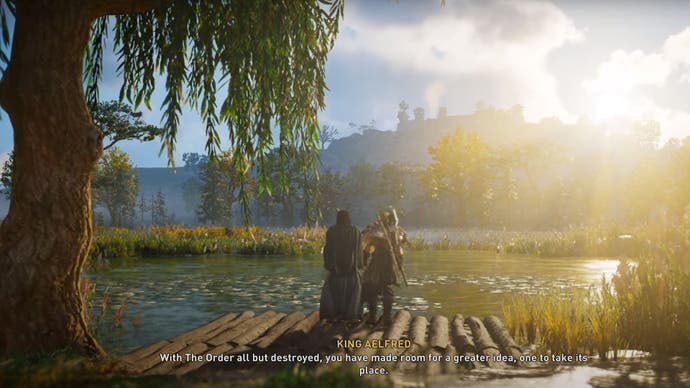
It's a neat narrative trick to explain the Order of Ancients' rebranding and subsequent alignment to Christianity - even if Aelfred's plan that the group will no longer covet the Isu clearly does not pan out. The Templars' later desire for world order does not come from a pious place, as we see in the many games set later where they are the villains, while their desire for power sees them continue to explore the technology of the ancients.
Finally, there are hints again at what happens next in English history - at the spread of Christianity, and the likelihood Vikings will also accept that religion to better fit the country they now call home. "In time, all those who accept God will flourish," Aelfred muses, "and all those who defy Him will fall away. Should you remain in England, you too will one day be her subject." It remains to be seen whether Valhalla will continue to feature Aelfred's story in England within its two upcoming expansions, though their new focuses on Ireland and France suggests Eivor's story will simply move elsewhere instead.
Brother, hood you think you are?
Let's rewind to Norway and deal with Sigurd. To me, Eivor's brother spends most of Valhalla being a dick. Sure, he gets captured and tortured and loses his arm. But he also leaves Eivor to pretty much conquer England single-handed, and after being rescued (you're welcome, by the way), buries himself in delusions of grandeur from a realisation he has some connection to the gods. That is, of course, the same connection Eivor has - except she never goes around acting boastful about it.
Valhalla's one big ending difference - and really, its only major story consequence to the narrative options offered throughout the game - involves whether Sigurd returns from Norway alongside Eivor. This is determined by your choices at five points throughout the game: stealing Styrbjorn's wealth before leaving for England, beginning a relationship with Randvi before she and Sigurd separate, punching Basim in Oxenefordscire, denying Dag his axe in his final fight, and contradicting Sigurd in his settlement judgement. Notch up three or more of these strikes and Sigurd will stay behind, though you can remove one strike with the dialogue option where you plead for him to return. If your new total is lower than three, he will join you.
Once back in England, whether Sigurd is with you or not will simply flavour the game's scene where Eivor finally takes her seat as Jarl of Ravensthorpe. I was nice to Sigurd throughout the game, so he joined me. Not that he really deserved it.
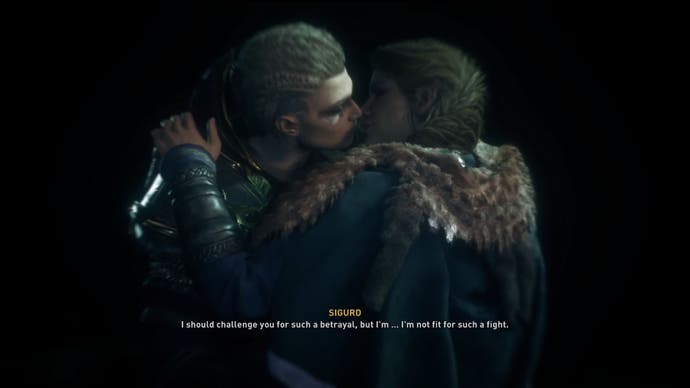
Never myth a trick
Let's finish with a dive into Valhalla's mythical elements, which you'll be given clues to from early in the game. From the off, Eivor is shown to be visited in visions by Odin and able to chat with him at certain moments, as if he were a consciousness within her. Eivor's visions of Odin are given new form when you quaff the elixirs in your Seer's hut and travel to dreamlike representations of Odin's life, set in the mythical realms of Asgard and Jotunheim.
If you've got this far and are still confused why Eivor is being referred to as a woman, it's because this is how she is shown in Valhalla's canon 'Animus Decides' option, and upon arriving in Asgard for the first time I remember being shocked at suddenly playing as male Eivor, referred to here as Havi, one of Odin's many pseudonyms. The in-game reasoning for your male appearance in Asgard is that you are experiencing Odin's memories, so your "DNA stream" is therefore portrayed as male. But, of course, this also acts as a clever clue to the true identity of Havi, and by extension, Eivor herself. How quickly you realise the Odin character you've been chatting to in visions is actually an aged, one-eyed version of Valhalla's male Eivor model will depend on how alert you are to such things, and many of the mythological story's clues may hit differently depending on which bits of the game you prioritise.
For example, you may see Odin's god mate Tyr lose his arm to Loki's wolf son Fenrir either before or after you play the Viking-set sequences where Eivor's brother Sigurd similarly loses his arm to Fulke's torture. Or, upon meeting Loki in Asgard, you might recognise he looks and sounds suspiciously like Basim without a beard... The game is built so that whichever order you play, you still feel like you're picking up clues to the game's ultimate big mystery - that multiple characters within Valhalla's main Viking storyline appear to have Norse god counterparts, and that Loki's mythological grudge against Odin and friends is still playing out today...
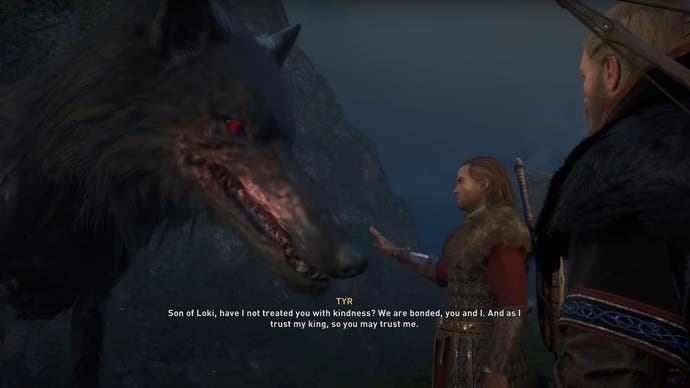
Isu there
One key thing to note about Asgard and Jotunheim is that they are not direct reproductions of Odin's memories via an Animus. Instead, they are dreamlike reinterpretations of Odin's memories as experienced by Eivor, filtered through her own knowledge and preconceptions of Viking legend. This is most clearly shown if you collect together the video fragments unlocked from the game's Animus glitch puzzles, which offer an alternative look at the final scene from the main Asgard arc. In Eivor's memories, the circle of Norse gods drink a magic mead which will apparently protect them from death at Ragnarok. In the Animus glitch puzzles, we see what "really" happened: Odin and friends upload their consciousness to the Isu's Yggdrasil device, to eventually be reborn from human embryos, thousands of years later.
We see Eivor and Sigurd visit the Yggdrasil machine in the game's finale, where Eivor resists the consciousness of Odin inside her. The suggestion is that Odin wants to wrest control of Eivor, replacing her consciousness with his personality which has lain dormant within her. Instead, Eivor wants to go home. After a struggle, Eivor wins. She also defeats Basim - a reincarnated Loki - and leaves him plugged into the device.
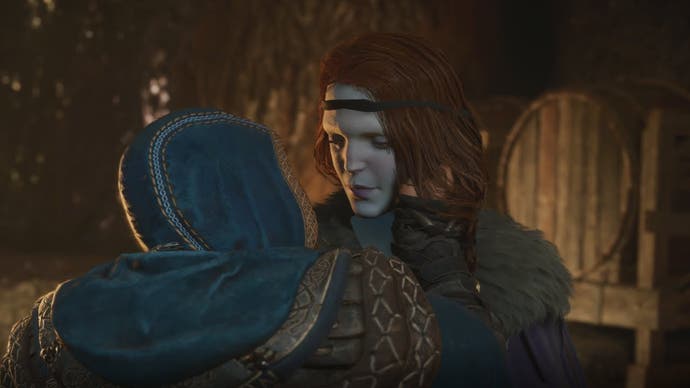
900 years later, Valhalla's modern day storyline concludes. Assassin's Creed Origins and Odyssey protagonist Layla Hassan visits the Yggdrasil machine herself for world-saving reasons, but it's revealed Loki/Basim has taken advantage of these reasons to pull off an extremely long con and finally escape the machine. In Odyssey, we saw the Isu named Aletheia guide Layla to the immortality-gifting Isu Staff of Hermes Trismegistus, which apparently still contains Aletheia's consciousness within it. And in Valhalla's jaunt to Jotunheim we met Loki's partner Angrboda, Loki's partner, who is hinted to be Aletheia as well. And so as Layla enters the machine, Loki - still alive, barely, after all these years - hops out to grab the staff for himself and use it to get a glow-up.
Valhalla ends with Layla's consciousness in Yggdrasil, seeking to guide humanity alongside the consciousness of fellow deceased Assassin's Creed modern day protagonist Desmond - the pair of them represented by glowing avatars within the Isu machine like a virtual Adam and Eve - and Loki/Basim scooped by the modern day Assassins, still holding the staff, and still keen to restore Aletheia.
Those who came before
Almost every Isu character from previous Assassin's Creed games can be found in Asgard or Jotunheim, though you'll need to pay attention to work out who they really are. Hyrrokin, who is looking for a way to revive her husband, is clearly Juno. The "calculating" Gunlodr, who Havi can romance, is strongly implied to be Minerva. That means her father Suttungr, who you fight, is Jupiter. Angrboda, Loki's partner, is Aletheia. (All of these characters' voice actors are the same as in previous games.) Mimir, we'd guess, is meant to be Aita.
The difference in appearance between Odin's Aesir and Vanir friends and Jotunheim's blue Jötnar frost giants suggests there were different groups of Isu - and it seems likely the war which results in Ragnarok was a clash between those various sides. Assassin's Creed has previously suggested the Isu had a caste-based society, and so it is interesting to hear Freyja being referred to as from a different but friendly group, while Loki is treated with suspicion. The depiction of Loki and Angrboda's son as a terrifying wolf is perhaps meant to reflect some of the prejudice felt by Odin to a child from a different caste.
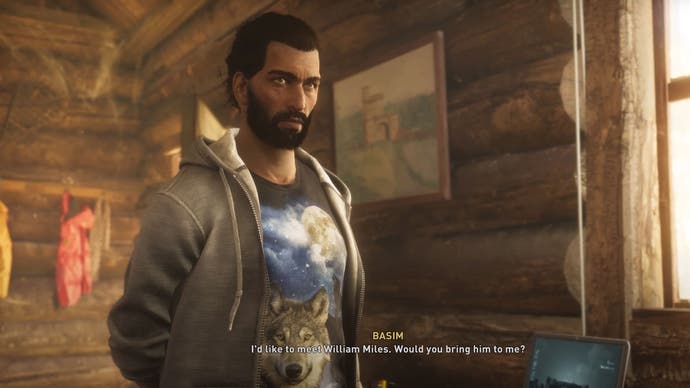
To be continued...
Phew. Valhalla has an awful lot of story in it, and there's plenty more to marvel at tucked away in its various corners. I loved seeing Eivor find the New England cave where Desmond met his fate in Assassin's Creed 3, for example, and the parallels of her discovering Isu technology she knew was intended for someone else. I got a huge shock hearing Ezio's voice ever-so-briefly in Jotunheim, talking to Hyrrokin (the Jötunn you may realise is the infamous Juno). I loved hearing Bayek speak again after collecting all of the Hidden Ones codex pages, and reading about Aya's exploits in them. And I'm pleased that, after 10 years, Shaun and Rebecca have finally hooked up.
I'm also intrigued where Assassin's Creed goes next with all these story threads, now that it has tied up many of its ancient-era trilogy storylines. Will Basim continue to be the series' modern day protagonist? Will Aletheia return, or will her storyline be consigned to graphic novels, where Juno's own plot ended up being resolved? And will these questions be answered in Valhalla's expansions, or in some future game?
